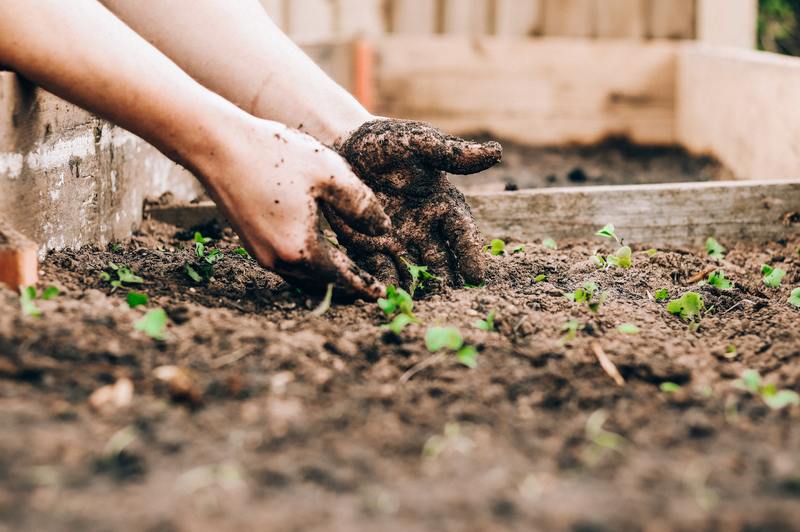Don’t waste time and money on pest control. Instead, follow these methods on how to control pest in garden to make sure garden pests aren’t a problem at all.
It can be disappointing when a potential gardening season is taken down due to a pest infestation. Garden pest prevention is an essential aspect of any garden care strategy.

Beneficial Insects
Organic pest management does not attempt to eliminate all insects. In truth, 95% of insects are either harmful or useful.
Insects that prey on pests, such as ladybirds, ground beetles, spiders, and parasitic wasps, are helpful to a garden. The following beneficial insects are useful in your garden:
1. Nematodes
Cutworms, a common pest that kills sprouts before developing into seedlings, are susceptible to nematodes. Nematodes are also efficient against the larvae of beetles and root weevils.
2. Praying mantis
Most garden pests are attracted to these huge insects. Praying mantis eggs are planted in the garden, where they hatch and soon mature into adults.
3. Chalcids, ichneumon wasps, and arachnids
These valuable insects consume caterpillars that eat leaves. Plant celery, parsley, and carrots to attract them to your garden.
These plants are simple to cultivate and should be left to blossom. The bloom is what draws the insects.
4. Lacewings
Lacewings are voracious aphid eaters, and their larvae consume aphids and a variety of other insect pests. They are interested in “composite” flowers like goldenrod and yarrow.
If you are still confused that these insects help prevent pests in your garden, read what is a biological control for pest management to know more!
How To Control Garden Pests In A Natural Way
Insect pests and pest infestations pose a challenge to every gardener, and the desire to eradicate them is excellent. Chemicals may deliver a quick knockdown to problems in the short term, but they may also kill beneficial insects.
In the long run, you expose yourself and the environment to hazardous chemicals and risk ruining your garden’s natural ecosystem. Overall, an organic approach is both safer and more successful.
If you are a beginner in pest control, you can check this article about what is pest control to help you in preventing pests in your area.
The following are some non-chemical methods for avoiding pests from taking over your garden.
1. Use physical barriers
Make a physical barrier to keep pests away from your fruits and veggies. There are several methods for accomplishing this, but one of the simplest is to use a fine net.
Place the net over your plants, providing enough space for the plants. A cardboard collar wrapped around the stem of a plant and pressed into the soil an inch or so deep can keep cutworms and other burrowing insects away from your plants.
2. Maintain the health of your soil
Healthy soil results in healthy plants with strong immune systems better prepared to deal with illnesses and pests. Soils that are healthy nourish and shelter healthy soil life.
3. Rotation of crops
Crop rotation is the practice of producing several types of crops in different areas of your garden each year to help decrease insect infestation. If the plant they consume is relocated, the insect is compelled to travel closer to the food source, putting them at risk of attack by birds and other insects.
4. Interplanting
Interplanting is the practice of alternating certain flowers, herbs, and crops with misleading pests. Alternate vegetables with rows of beneficial insect-attracting and pest-repelling herbs and flowers instead of mono-crops.
5. Keep the leaves dry
Water the plants in the morning to ensure that the leaves are dry for the rest of the day. Wet foliage invites insect and fungal infections on your plants.
6. Use spray or seaweed fertilizer
Calcium, iron, sulfur, zinc, and magnesium are trace elements in seaweed that support healthy plant development. Seaweed fertilizer in mulch or spray can boost growth and provide plants the strength to resist infection. Seaweed mulch is also effective in deterring slugs.
7. Do not use non-certified transplants
When we transport plants from one garden to another, we might also transmit pests and diseases. Purchase plants and soil additives from a reliable supplier to ensure that any transplants are clean and free of diseases and pests.
8. Dispose of infected plants
Other debris should be incorporated into the soil or decomposed. With a fork or spade, loosen the soil to expose any leftover eggs, larvae, or pupae to birds and cold weather.
Weeds in your garden should be trimmed or removed since they can serve as a breeding ground for insect pests.
9. Practice resistant varieties
Certain varieties have a high inherent resistance to pests and disease. Plant breeders also look for disease and pest resistance traits.
These desired traits are frequently indicated on seed packs and plant labels.
10. Pick insect pests off plants by hand
Large insects, slugs, snails, and egg masses should be hand-picked and dropped into soapy water. Small insects off plant leaves should be thrown into a piece of paper and discarded.
Conclusion
Natural pest control will improve the health of your garden. Insects are attracted to stressed, wounded, or otherwise sick plants; therefore, taking care of your plants is essential for protection.
This includes paying much attention to them and providing an atmosphere conducive to healthy, and solid growth. Now that you know how to control pest in garden, you can now apply the said methods to make your garden beautiful and healthy!
